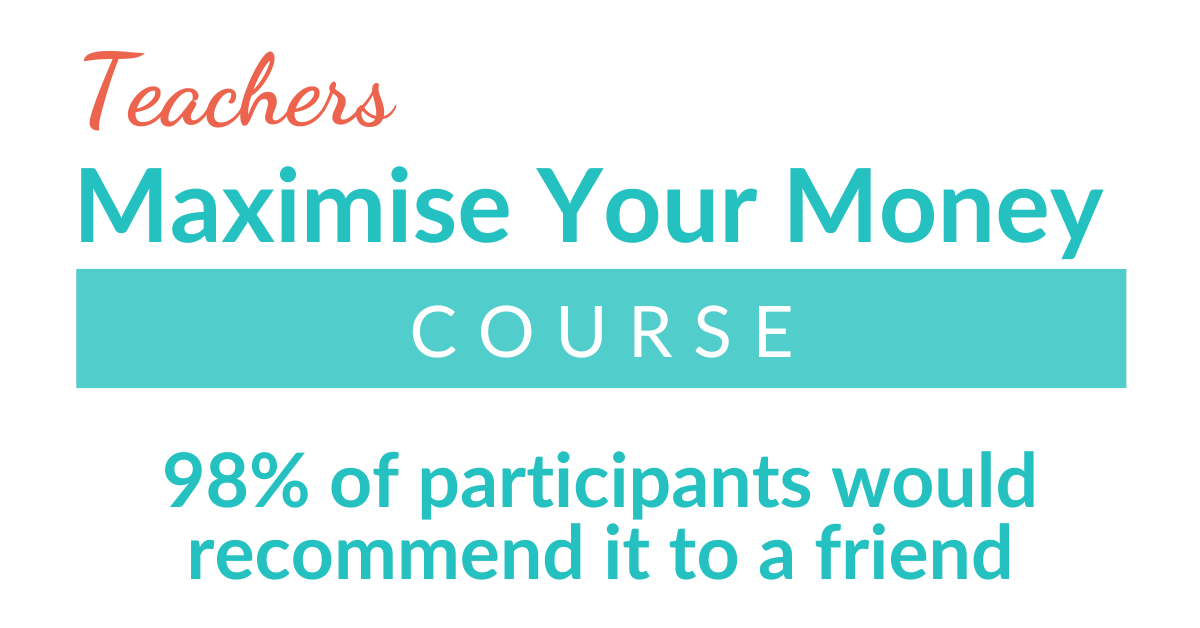Claim your freebie!
Change Your Money Story
- Be excited for the future
- Feel empowered; in control
- See what’s holding you back & create new habits
- Have more money for fun
Take a course!
- understand your money blocks and why they make life difficult
- break old habits and build new ones to help you to feel in control
- change the way you speak about money and begin to feel great about it
Have you ever thought about improving your relationship with money? For most people the answer is probably “No”.
However, for many people improving their relationship with money, is the single biggest thing that they can do to improve their financial situation.
Taking the time to do this might just change your life.
Your relationship with money begins at any early age. The stories you hear, the examples you are set, and the behaviours you see will impact on you every day of your life.
Those who have had positive examples set to them from an early age, are more likely to grow up with a healthy money mindset, allowing them to co-exist happily with money and to have a great relationship with it.
However, there are many, many people whose upbringing results in them having a much more fractured relationship with money. 
This post will help you to identify your money mindset and will also look at some simple steps improve your relationship with money. There is also a helpful booklet that goes along with this blog post, which will really help you to start improving your money mindset.
Identify your relationship with money
The first step in improving your relationship with money lies in identifying what your relationship with money is like in the first place. When thinking about your relationship with money it is sometimes helpful to think of money as a person. I know it sounds a bit daft, but bear with me!
How would you describe money?
Is money your best friend or your sworn enemy? Is money a person who makes you feel safe and secure inside? Or does money put you on edge every time you meet her? What about that brilliant, fun-filled friend who is always up for a laugh – does she spring to mind when you think of money? Or is it that bitchy mum from the school gates that you can't stand the sight of? 
How do you feel about meeting money?
Do you look forward to spending time with her? Or do you keep making excuses to avoid meeting her? Is she OK if she is in a big group, but you avoid meeting her alone? Is she someone that you feel obliged to meet, but that you really resent spending time with? How would you best describe your feelings about meeting money?
How comfortable are you around money?
Does she make you feel happy? Excited? Do you feel rich around her or does she make you feel poor? Does she make you feel sad? Angry? Uncomfortable? Are you jealous of her? Envious? Does she cause you to lose sleep? Do you lie awake stewing about that conversation that you had with her in the middle of the night?
Think deeply about your relationship with money and write down how comfortable you feel around her. Questions, questions, questions - it's like being back at school!
Downloading this booklet will help you to delve deep into your money thoughts and make sense of what your relationship with money is like.
The impact of your relationship with money
Once you have begun to identify what your relationship with money is like, it’s time to then think about the impact that this relationship is having on your finances.
If money is that best friend, who is wild, great fun and a laugh a minute, do you find yourself spending more than you would like when in her company? Does she make you spend more money than you had intended?
When buying that new pair of shoes, is that fun money friend whispering in your ear “Go for it, you work hard and you deserve a wee treat!” Is that encouraging voice then replaced with the reality which spoils your fun, by reminding you “You are already up to your eyes in debt, how are you going to afford to pay for all this?”
Does your fun friend make you feel brilliant at the time, but guilt and shame appear after the magic of the time spent together has faded? 
It's not fair
Or is your money relationship best described as that angry person, who blames everyone else for everything?
“I’m skint.” “It’s not my fault, everything is so expensive.” “There is nothing I can do about it.” “It’s not fair, she’s got it easy.” “She is just lucky with money. I have no luck!” “I wish I could afford to do that.”
These thoughts can really impact badly on your finances because you are accepting your situation and feeling powerless to do anything about it. It brings about a negative mentality. Rather than looking for solutions to the problems, you just make excuses as to why they can’t be solved. These excuses then become your reality – you will never solve the problems if you feel that they are unsolvable!
Stability
What about money being that stable, secure pal who is always there for you and makes you feel safe and happy? If they are not there with you, do you feel less happy and secure?
If that describes your relationship with money, are you only happy when you have money in the bank? Do you enjoy seeing your bank balances increase? Is that feeling of security so important, that you find yourself denying yourself any fun now? Do you live such a frugal life, to get the mortgage paid off or increase your savings, that you are making yourself miserable now?
Taking the time to think about how your relationship with money affects you daily is key to improving your relationship with money. If you can start to notice all your money thoughts, then you can start to sift through them and work out what they mean. Carry a notebook around with you, and note down anything interesting that you discover.
How can you improve your relationship with money?
Read on for some strategies that may help you to improve your situation. 
What does your financial future look like?
Firstly, I would encourage you to think about how different your life would be if your finances were “perfect”.
What is it that would make you happy?
If you woke up tomorrow morning and your financial situation was 10/10 how would you feel? Excited? Secure? Happy? Debt-free? Proud?
What difference would it make to you and your family? Would you have more fun? Be able to spend more time together? Be able to sleep better? Plan ahead?
What would other people say about you? Would they notice a difference? Would the kids say that I am less grumpy and more fun? What would my partner say? That I was back to my old self again?
What about the rest of my family – would they notice a difference?
Take some time to think about these questions for yourself.
Just how different would your life be if you could improve your relationship with money? Imagining a new version of yourself, and getting a clear picture of her in your mind, is a surprisingly powerful motivator for helping you to move forward. Really think about the “new you.” What does she wear? How does she behave? What does she do? How does she feel?
Create a clear picture of her in your mind, on a mood board, or in a couple of sentences. Then really tune into that new version of yourself. Remind yourself of this daily – this is who you want to be and this is who you WILL be! Now that you know how you want it to be and who you want to be, you just need to work out how to make that happen.
Education and empowerment
To me the key is education. (Hardly surprising from a teacher, is it?) You should educate yourself about money, about how to improve your relationship with it, as well as where your weaknesses are. Then all you need to figure out is how to go about improving them!
This post about making better financial decisions will help you to identify any gaps in your financial knowledge and give you strategies to help you to improve these. 
What can you expect to gain from learning about yourself and your relationship with money? You will:
- understand WHY you make the decisions that you make
- understand what you can do to change these
- make better money decisions
- save money
- make more money
- gain massively in confidence
- feel amazing
- have more fun!
The confidence that you will gain from being able to make better decisions will encourage and motivate you as you continue your journey into improving your relationship with money.
Some strategies that might be useful to you in improving your relationship with money are:
If you find that your wild money friend is encouraging you to make unplanned purchases, a brilliant strategy for changing this is to set yourself some spending rules.
Firstly, I would suggest that you always shop with a list, even if you are going clothes shopping. Think about what you need/want to buy before you leave the house and add it to the list. If you see anything that is not on your list and are tempted to purchase, then apply a waiting rule.
This could be that you are not allowed to buy it for 24 hours, or that you are not allowed to buy it for 30 minutes. Anything that makes you move away from the item, take time to consider that vision of the “new you” and give yourself some time to consider whether you really want to make the purchase or not. Often, that time out is all that is needed to prevent the unplanned purchase.
Gratitude is important
What about that angry, bitter money person who blames others for their problems? How can they change?
A brilliant strategy here is to practice gratitude - being grateful for what you do have is surprisingly powerful for attracting more good things into your life. Really start focusing on the good things in your life, write them down daily. “It’s a beautiful, sunny morning.” “I have 3 lovely children.” “I have a roof over my head.” “I have enough money to buy food.”
Couple this with tracking the money that you do have in your life. Track every penny that comes into your life – e.g.: actual income, wages, tax credits, child benefit, interest on savings etc. Also, track the value of other things that you receive – e.g.: presents, discounts on items bought, coffee and cake at a friend’s house.
Being grateful for this can help you to feel more positive about money in general, which in turn will help you to see that you CAN change your situation and you CAN have more money in your life. 
Is money making you miserable?
If you are that person who is so frugal that they are making themselves miserable, then don’t despair – you too can change your mindset.
We are only here for a short time and we need to be able to make the most of the present as well as the future. It is reasonable to want to be well-prepared for the future, but being so obsessed by saving that you don’t enjoy the present cannot be a good thing for anyone. You could be run over by a bus tomorrow! Hopefully not, though!
The first suggestion is to work out how much you will need for your planned future. Have you got enough already?
If not, then plan how you can get the required amount, without leaving yourself short in the present day. Think creatively – can you increase your income? Make more of your savings? Create another income stream?
Changing your tendency for being hyper frugal is not going to happen overnight. Start small – set aside a sum of money each week/month, that is purely for spending on fun! Think about the things that you really love and think about how that money can be used to make you happy now.
That is an amazing investment in your future – being happy now will help you to create a happy future too.
Support as you improve your relationship with money
Change is not easy, so finding people who will encourage and support you as you make improvements is vital. Sharing your journey with those that you trust is powerful.
You might be surprised to discover that others have similar stories to share. Get them out there in the open – why not have a money date with your partner or your pal? Actually discuss your feelings around money, rather than just the practicalities of it.
There are also loads of places online where you will find support and help as you improve your money skills. I have a FB group for women only, where you will be made most welcome. There I share money ideas and you will get support as you make your journey in improving your finances.
What can you expect from improving your relationship with money?
“I don’t even know where to begin, in 4 weeks my confidence in dealing with big financial decisions has soared. I am making plans for the future without any fear or anxiety. Eileen’s coaching style is all about empowerment. I now know where I am going and how to get there. Thank you so much, you have given me skills for life.” AR, Dumfries
Prior to taking a Your Money Sorted course just 3% of my clients agreed that their feelings and attitudes towards money were positive. By the end of the course, 92% agreed, that they had a positive relationship with money.
Taking the time to investigate and improve your relationship with money works.
Why not start your journey into improving your relationship with money today, by downloading this free booklet?
As well as downloading my booklet, you could pop along and join my Your Money Sorted group for women who would like to get some help with their money.
Eileen x 
I am Eileen, Your Money Sorted coach, working with UK based women helping them to become financially empowered. Being calm, confident and in control of their finances, allows them to concentrate on the things that are important to them. Previous clients feel that they can spend more quality time with family, friends and having fun. That has to be a great thing doesn't it?










